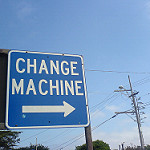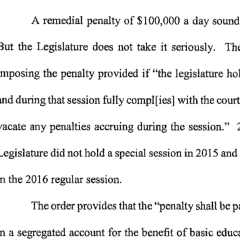During an teacher leadership workshop I was leading a few years ago, a veteran teacher said this to me:
“It feels like every time I go to present a new idea to my principal, she shoots it down just because it’s coming from me. It’s like she says ‘no’ just because I’m the one with the idea. I keep thinking that if she heard it from anyone other than me, she’d give a different answer.”
My response: “You’re probably right.”
That doesn’t make it fair or valid, but the reality of human interactions is that there are times where who is doing the talking matters. As I got to know this particular teacher and his situation, it was pretty clear that he and his principal had a history of conflicts…most of them petty…which colored their relationship. Wrong as it might be, the principal was saying “no” because of the messenger and his track record, not the message itself.
Being skeptical or “resistant” to new ideas or to changes in practice is not a bad thing. We should allow ourselves time and space to think, process, and make decisions about the new. However, we also ought to be mindful of what exactly it is we are resisting.








